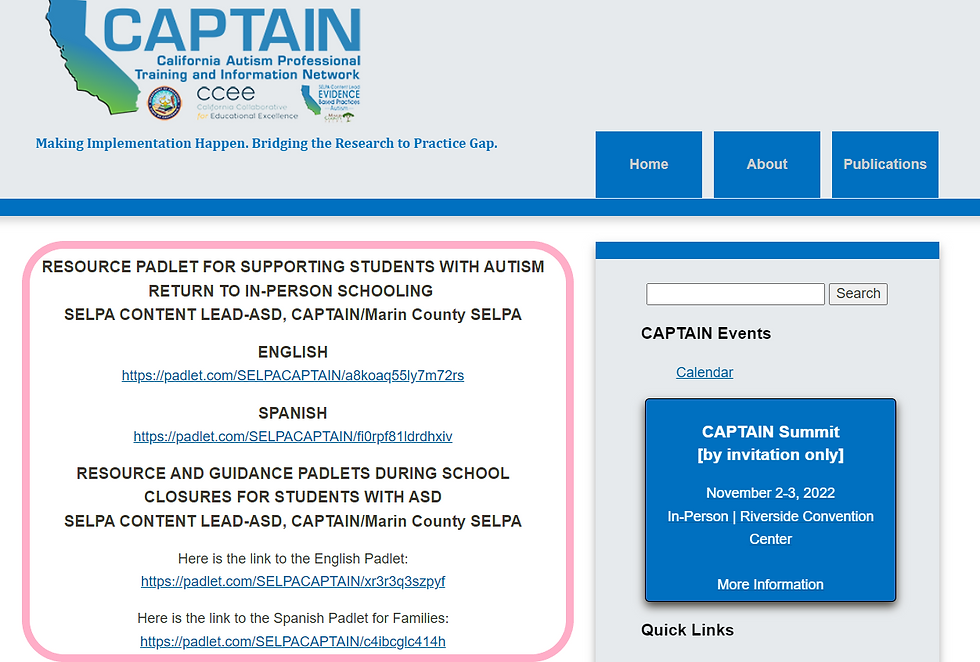A RCT of the Social Tools And Rules for Teens Program for adolescents with ASD (Vernon et al., 2018)
- bridgetcpd
- Apr 18, 2022
- 3 min read
Summary of the paper
Difficulties with social interaction has been one of the core deficits in Autistic individuals. Social skills interventions to support adolescents with Autism are particularly important as social interactions start to become more sophisticated during that developmental stage and a limited understanding of social rules and situations can leave Autistic teens vulnerable to exclusion and social isolation.
Vernon et al. (2018) therefore used randomised control trial method to test the efficacy of the Social Tools And Rules for Teens (START) Programme to see if it can support the development of social competencies of Autistic adolescents.
Each group consisted of 3-6 participants with 2-4 college-aged social facilitators and 1-2 high school peers. All facilitators received an initial 4hrs training of basic group facilitation skills. The college-aged social facilitators also received weekly supervision meetings for ongoing training purposes.
During the pre-intervention session, participants and parents were asked to rank a list of common social skill difficulties based on how much negative impact it has on the participant. They were also allowed to write in any additional concerns that were not listed. Based on the rank order, a specific social skill was identified as the initial primary goal. This goal was then reviewed every 5 weeks and new goals would be set if participants has mastered that social skill or if another social skill was identified as having a greater impact on their social interactions.
The programme consisted of weekly 90mins sessions for 20weeks. Each weekly session consisted of the following parts:
an individual check in session with a social facilitator - participants discussed challenges and successes in social situations in the previous week and reviewed their homework and individual targets with the facilitator
a group unstructured socialisation time
a group discussion on a targeted social situation/ skill - Social facilitators introduced the week's social skill topic and then demonstrated 'good' and 'bad' examples of that target skill. Video clips were also used to highlight good and bad examples of the skill. Social facilitators then discussed their personal experiences of that particular skill and participants were encouraged to do so as well, and to think of examples of successful use of that social skill
practising the social skills discussed during the group discussion with a partner
a structured group activity (team building activites & party games) - this was used to increase group cohesion
an individual checkout session with a parent - participants discussed their experiences in the group and reviewed the weekly topic with their parent and set 2 weekly goals (one based on their pre-set individual target and the other based on the weekly topic). A written summary of the weekly topic was also provided to the participant as reference.

This study used 3 scales to measure the outcomes of the intervention programme: 1. social skills improvement system-rating scales 2. social responsiveness scale 3. an internally developed instrument to measure social motivation and competencies.
Results revealed that participants felt less socially vulnerable and both participants and parents observed improvements in social functioning. Many participants also reported increased self-confidence and willingness to take social risks with peers.
Linking research to practice
The content of the START programme sounded very comprehensive. It provided a lot of targeted teaching of specific social skills and lots of opportunities for participants to practice these skills. While the programme seems to be effective in supporting the development of social skills in Autistic adolescents, the frequency and intensity of the programme made it difficult to be replicated in real-life settings. It is also difficult to draw conclusion on which elements in the programme were the most effective and whether they can be used separately if resources are limited. Further research is required for this programme or elements of it to be used in real-life settings.
However, I think that it is a great idea to involve non-Autistic peers to act as group facilitators in the programme. This promotes the exchange of perspectives and organic discussions between peers in a safe space, rather than having 'professionals' to speak for either group, which might sometimes come across as condescending. Non-autistic peers can also learn and understand more about how they can support their Autistic peers in various social situations, which is also essential in creating a more inclusive society. Yet, again, I am not sure how easy this can be achieved in real-life settings as including students in targeted groups often means having to pull them out of lessons and therefore, it might not be appropriate to include students who are not struggling socially in these groups, in expense of their lesson time.
Research paper
W Vernon, T., R Miller, A., A Ko, J., C Barrett, A., & S McGarry, E. (2018). A randomized controlled trial of the Social Tools And Rules for Teens (START) program: an immersive socialization intervention for adolescents with autism spectrum disorder. Journal of Autism and Developmental Disorders, 48(3), 892-904.


Comments